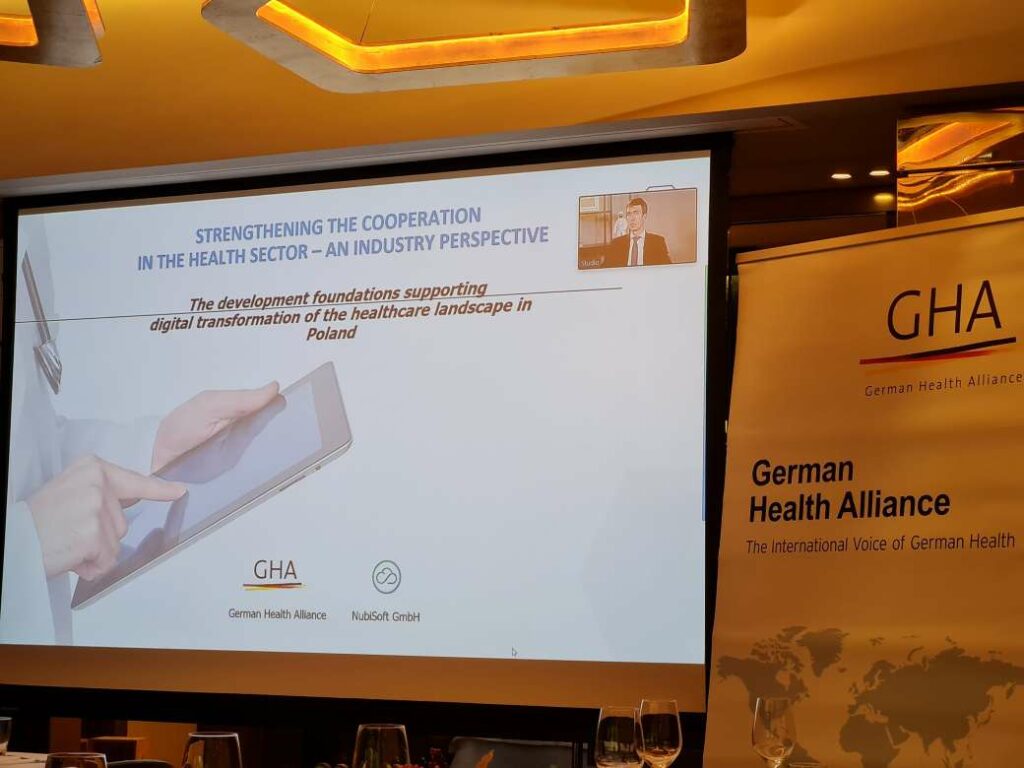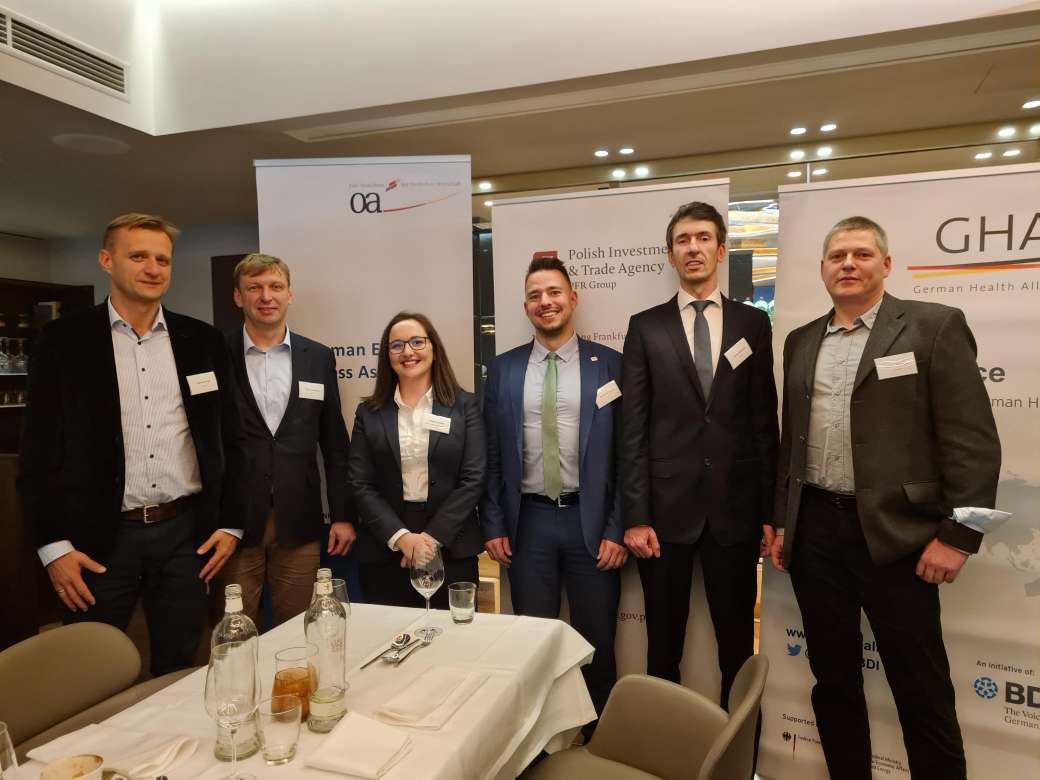On October 22, 2020, a conference was held by the German Health Alliance (GHA) as an official side event of the World Health Summit (WHS). As a GHA member, NubiSoft accepted the invitation to actively participate as a speaker.
The meeting took place in Berlin but was also live-streamed. Therefore, the speakers started the day by arriving at the studio from which the program was broadcast, and the viewers gathered in the restaurant, where they could watch the speeches on a large screen. After the official part, everyone met for lunch in a restaurant, where they could discuss the topics covered.
The main topic of the meeting was “The health sector in post-pandemic mode? Recovery plans, innovations and investments in Central and Eastern Europe“. The entire event was divided into two panels. The first part was about “Recovery and innovation plans for the health sector on national and European level – which core topics for the cooperation with German companies?” The speakers were Dr. Andrea Ficzere (President, Hungarian Hospital Association), Dr. Adam Kozierkiewicz (Project Expert, European Investment Bank), Sonja Wehsely (Managing Director Siemens Healthinieers Central/Eastern Europe&Turkey, Siemens Healthineers), Karolina Król (Polish Investment and Trade Agency), and the discussion was moderated by Axel Lohse (Deputy Director and Manager Medical Biotechnology & Pharma, HEALTH MADE IN GERMANY). The second one was about “Strengthening the cooperation in the Health Sector – an industry perspective“.
During the panel discussion, we talked about our experience in digitizing the healthcare sector in Poland over the past decades. In a short presentation, we tried to identify key factors that stimulated that change and shared our views on possible directions in which digitization will now develop in Poland and in the world. The presentation is now available to the public.

Interesting discussion led us to the conclusion that software vendors in Poland, but also in general, are now facing a big challenge. They have mature and stable products, but on the other hand adoption and integration of constantly increasing numbers of e-services has a big impact in terms of architecture and system design. To stay on top of the digital wave, they must invest a lot of time and money without guarantee for success. What we see as a trend is that they seek a partner which has not only good technical knowledge and experience, but also knows the legacy systems and understands why they are designed like that. That helps them do the transition smoothly and at a lower cost.
Thanks again to the management of GHA for inviting us to Berlin, and to our new friends for a great time!
